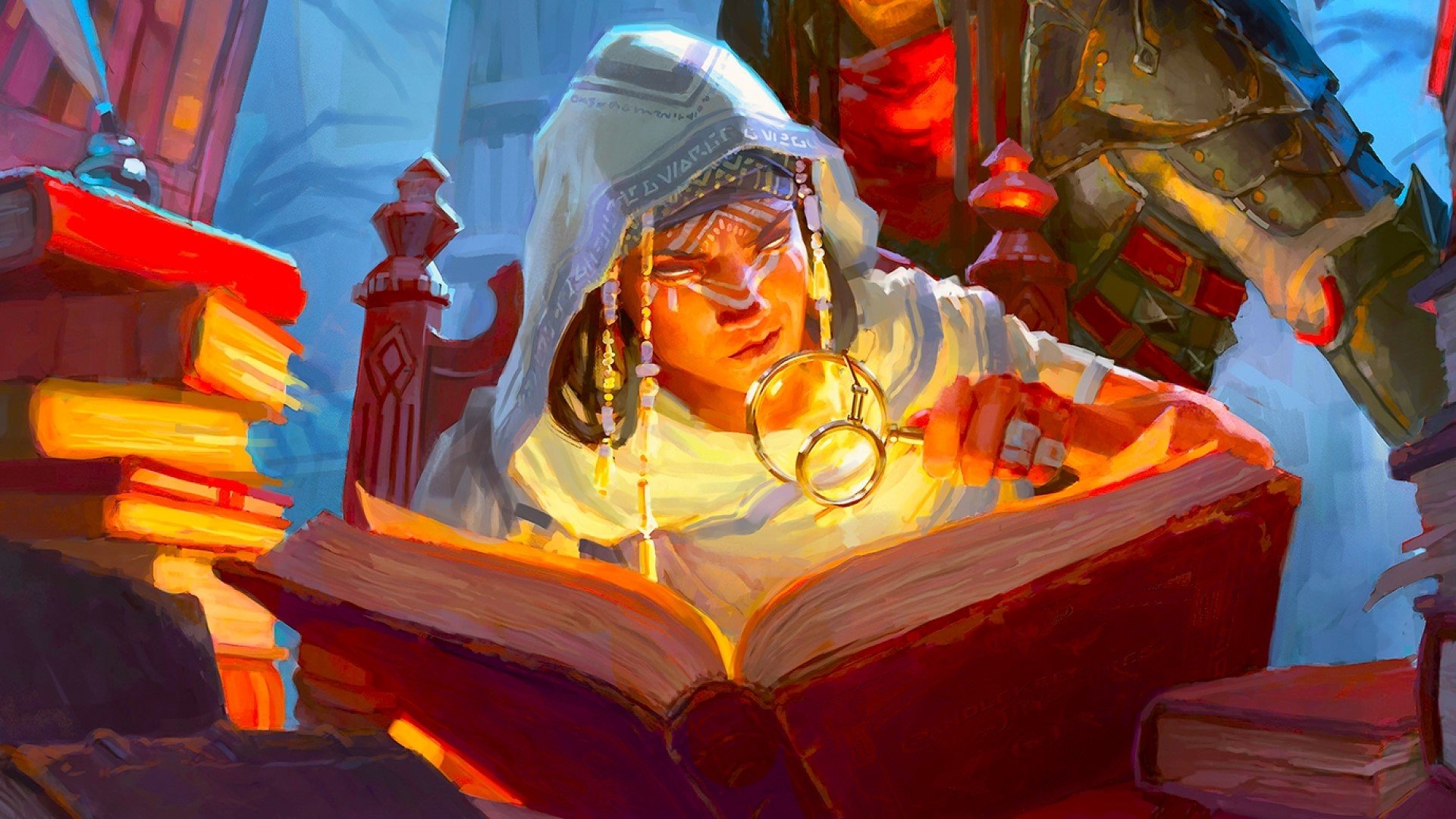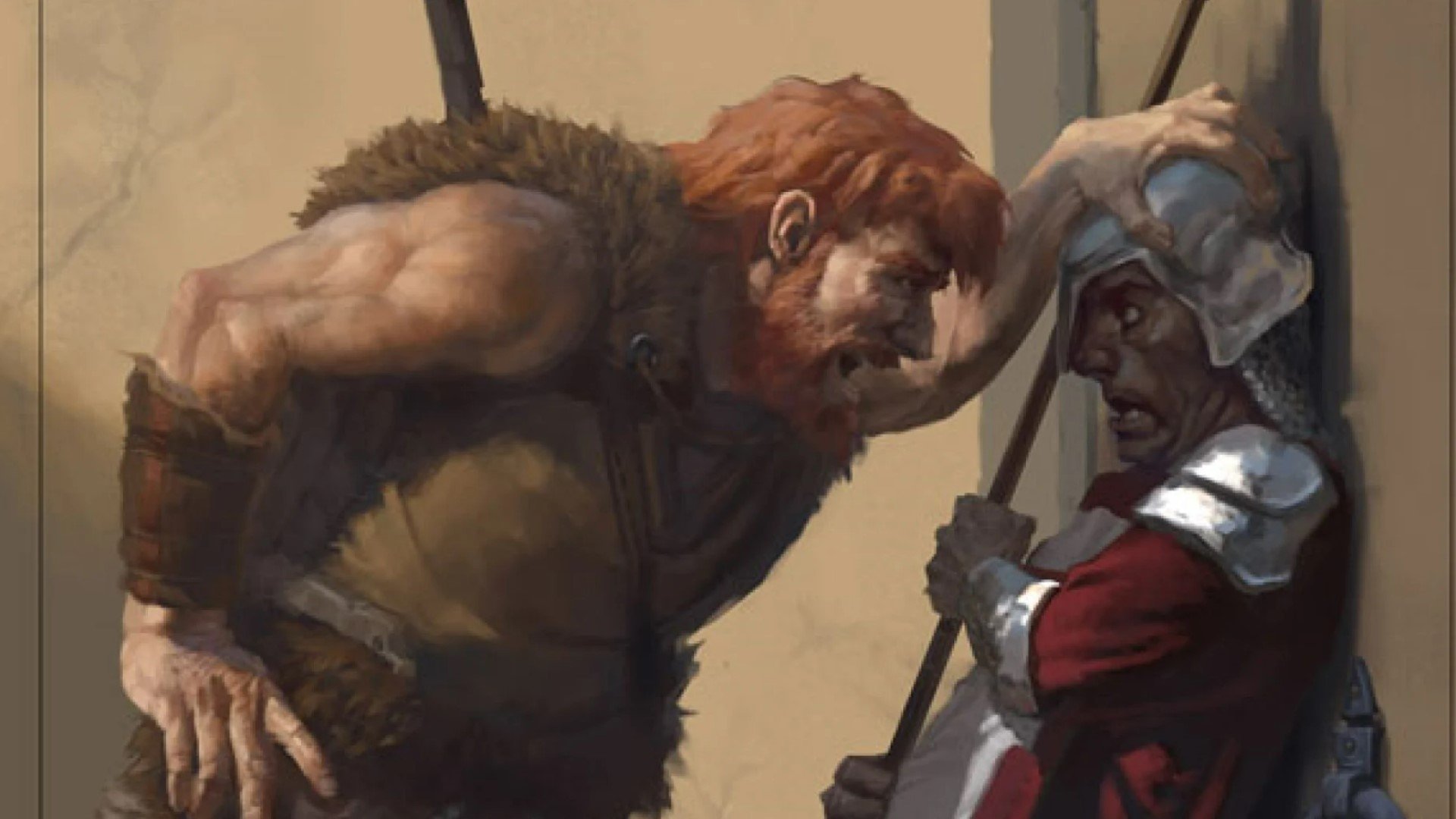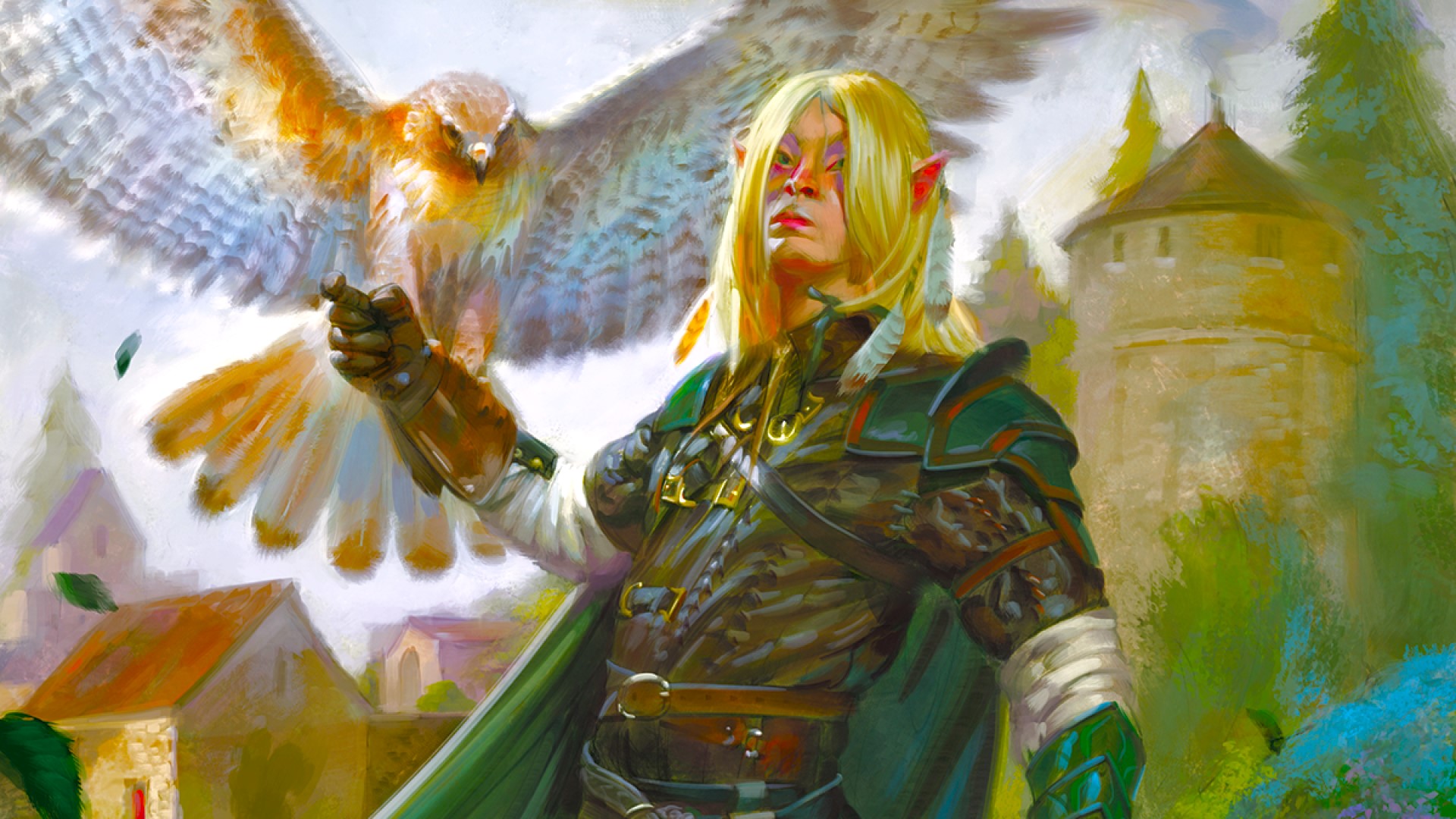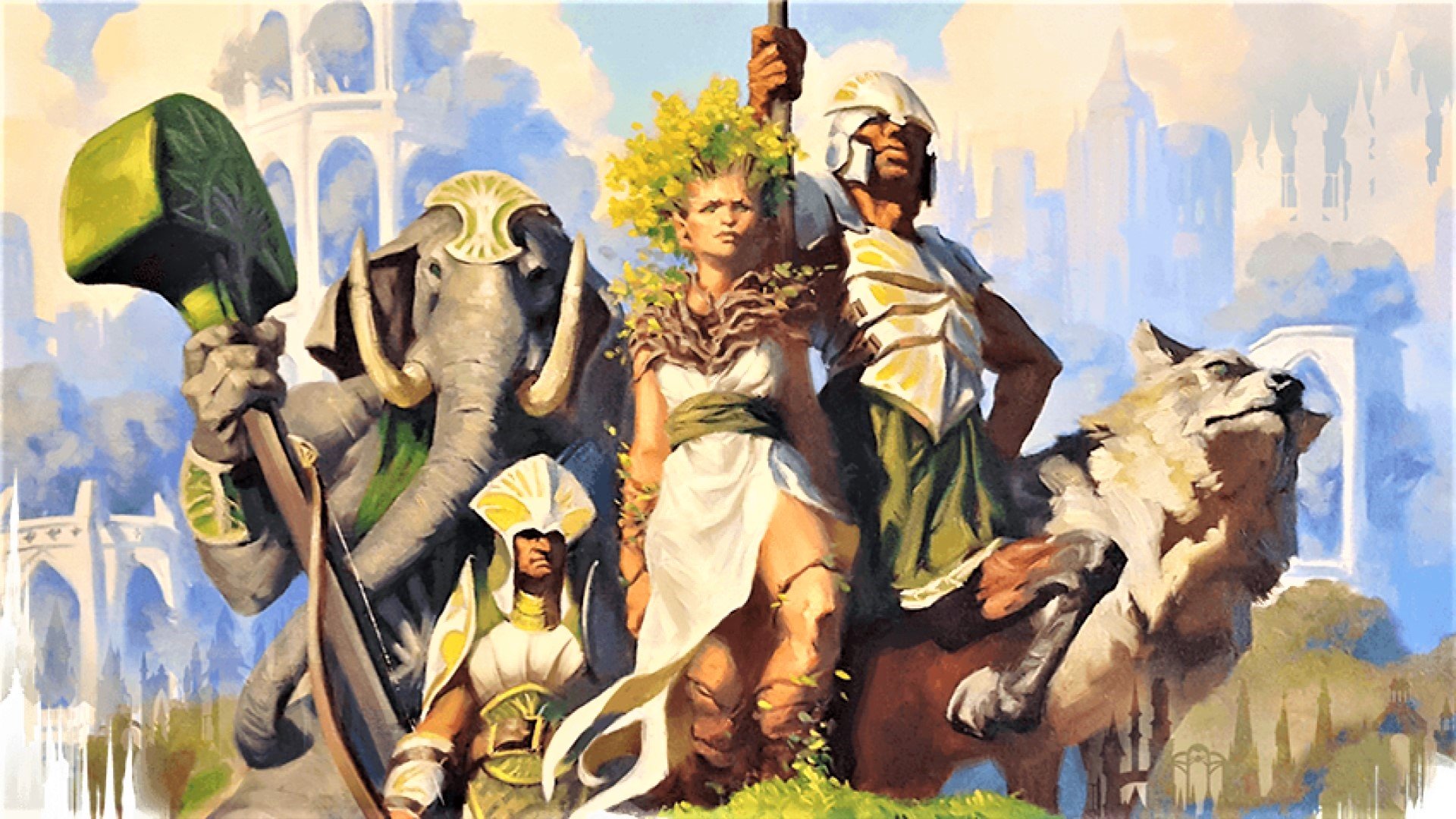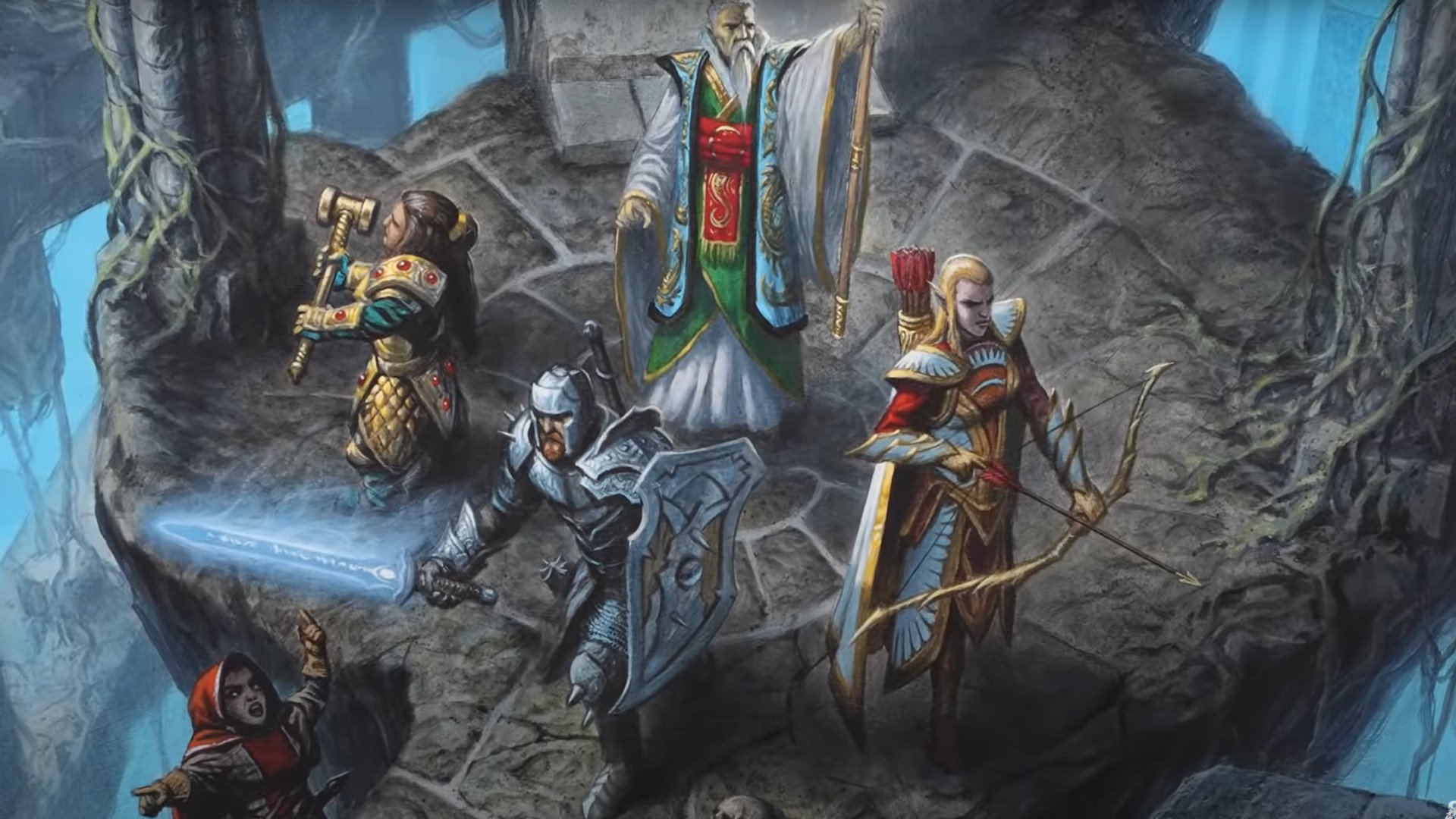All DnD 5e skills explained

DnD skills summarise pretty much every ability a TTRPG character might need to use on their adventures. Whether you’re planning on looking, leaping, learning, or lying, there’s a matching skill to check with the roll of a d20. This guide explains all 18 skills, what they’re for, and how to roll skill checks in your games.
Anytime you face adversity, it’s time to crack out your DnD character sheets and see what 5e skills can help you win the day. However, you should probably understand what each of the 18 skills are while you’re in DnD character creator mode. Read on for succinct summaries of pretty much everything you can do in a game of D&D – and an FAQ section that wraps up all the biggest rules questions surrounding skills.
The 18 Dungeons and Dragons skills are:
- Acrobatics
- Animal Handling
- Arcana
- Athletics
- Deception
- History
- Insight
- Intimidation
- Investigation
- Medicine
- Nature
- Perception
- Performance
- Persuasion
- Religion
- Sleight of Hand
- Stealth
- Survival
Acrobatics
Linked to stat: Dexterity
Acrobatics is about more than being able to do backflips. As well as referring to how well you pull off rolls or flips, this skill helps you keep your balance on a slippery slope or precarious bridge.
Animal Handling
Linked to stat: Wisdom
Not everyone is a natural Snow White. Animal Handling helps you deal with creatures you meet on your adventures – whether that means you intuit an animal’s mood, keep it calm in a stressful situation, or convince it to do something. With a few successful rolls, you can lead a horse to water and make it drink.
Arcana
Linked to stat: Intelligence
If you’re a Wizard 5e, chances are you’ll be relying on the Arcana skill. All spellcasters have a deep well of magical knowledge, and you’d roll Arcana to recall some relevant mystical details. If you want to check whether you recognise a strange symbol on the wall or a suspiciously-magical-looking item, this is the way to do it.
Athletics
Linked to stat: Strength
Athletics is the only skill that’s linked to your Strength stat. It covers pretty much any kind of physical exertion – with climbing, jumping, and swimming being the ones you’ll likely test most often. However, if you wanted to win a tug-of-war contest, you’d rely on your athletic abilities too.
Deception
Linked to stat: Charisma
Your parents may have taught you that lying is wrong, but there are plenty of situations in D&D that call for a bit of fibbing. Deception refers to your ability to hide the truth – both using your words and your body language. Outright lying is naturally covered, but you might also be rolling Deception checks to pull off a disguise or successfully bluff in a game of Poker.
History
Linked to stat: Intelligence
Just as Arcana measures the depth of your magical knowledge, History refers to how much you know about the past. Anytime you’re examining an ancient object, it doesn’t hurt to check what you know about its history.
Insight
Linked to stat: Wisdom
Insight is all about intuition. A successful check lets you decipher a person’s body language – so you can tell when they’re lying, what they think of you, or what they’re planning to do next.
Intimidation
Linked to stat: Charisma
There’s more than one way to influence an NPC, and sometimes the threat of physical violence is the way to go. While Intimidation is all about Charisma, a flexible DM may let a Barbarian 5e roll for Strength instead if they roleplay in the right way. Sometimes a muscular, mean-looking character can intimidate without even opening their mouth.
Investigation
Linked to stat: Intelligence
Get your magnifying glass and deerstalker hat – it’s time for Investigation. This skill check comes into play any time you’re trying to uncover some mystery. Searching a room for clues (or a specific object) counts as an investigation. You may also roll an Investigation check to figure out what kind of murder weapon dealt a wound or whose shoe is most likely to match a footprint.
Medicine
Linked to stat: Wisdom
Medicine is a skill you won’t be using as often as you think. It lets you stabilise a dying companion, and in some cases you may be able to figure out what’s making someone ill. You won’t actually be able to heal any hit points, though – you’ll need rest, 5e spells, or the right items to do that.
Nature
Linked to stat: Intelligence
Nature is another skill that relies on a specific pool of existing knowledge. As the name implies, this is all about testing your memory of facts about the natural world. Need to determine what kind of mushroom has poisoned a peaky pal? Nature check. Want to figure out what kind of plant you’re looking at? Also a Nature check.
Perception
Linked to stat: Wisdom
Stop, look, and listen – Perception is all about being aware of your surroundings. When you’re scouting for enemies or are scanning a room for details you might have missed, you’ll likely test your Perception.
Religion
Linked to stat: Intelligence
It makes sense that a Cleric 5e would know a lot about DnD gods and religious rituals. To test this knowledge, though, they’ll need to roll for Religion. Background knowledge of religion will come in handy if you’re up against an evil cult or DnD monsters with a weakness for holy symbols.
Sleight of Hand
Linked to stat: Dexterity
Sleight of Handlets you pick a pocket or perform a magic trick. Given that it can also help you pick a lock or disarm a trap, it’s a popular choice for the Rogue 5e class.
Stealth
Linked to stat: Dexterity
This is a simple skill to explain, but it’s one you’re likely to be using often if Strength isn’t your forte. Stealth 5e lets you hide and sneak without being detected – as long as you roll well, that is.
Survival
Linked to stat: Wisdom
DnD skills FAQ
Above, we’ve explained what each of the 18 skills is used for in games of Dungeons and Dragons, but there’s much more to explore about using your character’s skills during an adventure! Read on for dead simple answers to some of the skill related questions we see most often.
What’s the difference between DnD skills and ability scores?
In DnD, skills measure how good your character is at completing specific tasks, like deceiving somebody, running fast, or jumping high. Ability scores are one layer deeper, measuring their fundamental physical and mental characteristics.
It’s important to understand, though, that abilities (a.k.a. stats) and their skills are intimately linked. Each of the 18 DnD skills is ‘governed’ by one of the six core ability scores, or stats. The higher your score in a skill’s linked ability, the better your character will be at that skill.
Rogues, for example, benefit from a high Dexterity ability score, not just because their attacks tend to use Dexterity, but because their key skills – like using Sleight of Hand to pick locks – are linked to the Dexterity ability. You can learn about all this in detail with our complete DnD stats guide, but are the core stats in brief:
- Strength – How much you can carry or how you fare in melee combat.
- Dexterity – How agile and precise your movements are.
- Constitution – Your toughness and endurance.
- Intelligence – Your ability to learn and use logic.
- Wisdom – Your intuition and awareness.
- Charisma – How well you fare in social situations.
Note that no skills are innately linked to Constitution.
How do DnD skill checks work?
Whenever you use any skill in Dungeons and Dragons, you’ll roll one 20 sided dice, then add:
- Your ability modifier for the skill’s linked stat (e.g. Dexterity for a Sleight of Hand check)
- Your proficiency bonus for this skill, if you have one.
If the total number matches or exceeds the difficulty class (DC) of the skill check, as set by the Dungeon Master, you’re successful. If your total result falls short of the DC, the check is failed and the DM will explain what happens as a result – for example, fail at disarming a trap and it might be triggered, putting the party in danger!
What are critical successes and failures?
In D&D, when you roll a 20 on the 20 sided dice in an attack roll or any skill check, it’s called a critical success – and a roll of a one is called a critical failure.
In combat, a critical success means you’ll roll twice the normal number of dice when calculating damage. In other skill checks, like climbing a rickety ladder or repairing a broken crossbow, it’s normally up to the Dungeon Master to decide if rolling a critical success confers an extra benefit, on top of simply succeeding at what you were trying to do.
In the current 2024 version of the D&D rules, there’s no official rules for critical failures – they simply count the same as any other unsuccessful attack roll or skill check. However, some Dungeon Masters choose to adopt homebrew or ‘house rules’ to add more dramatic consequences for rolling the dreaded one, such as having the character deal damage to themselves in combat, or damaging an object they were attempting to fix.
And that’s it for our explainer on Dungeons and Dragons skills for now – if you have any questions about how to use your characters’ skills to the fullest, or just want to indulge in some nerdy DnD chat, we got you! Come join the Wargamer Discord community to share your skills with the world!



